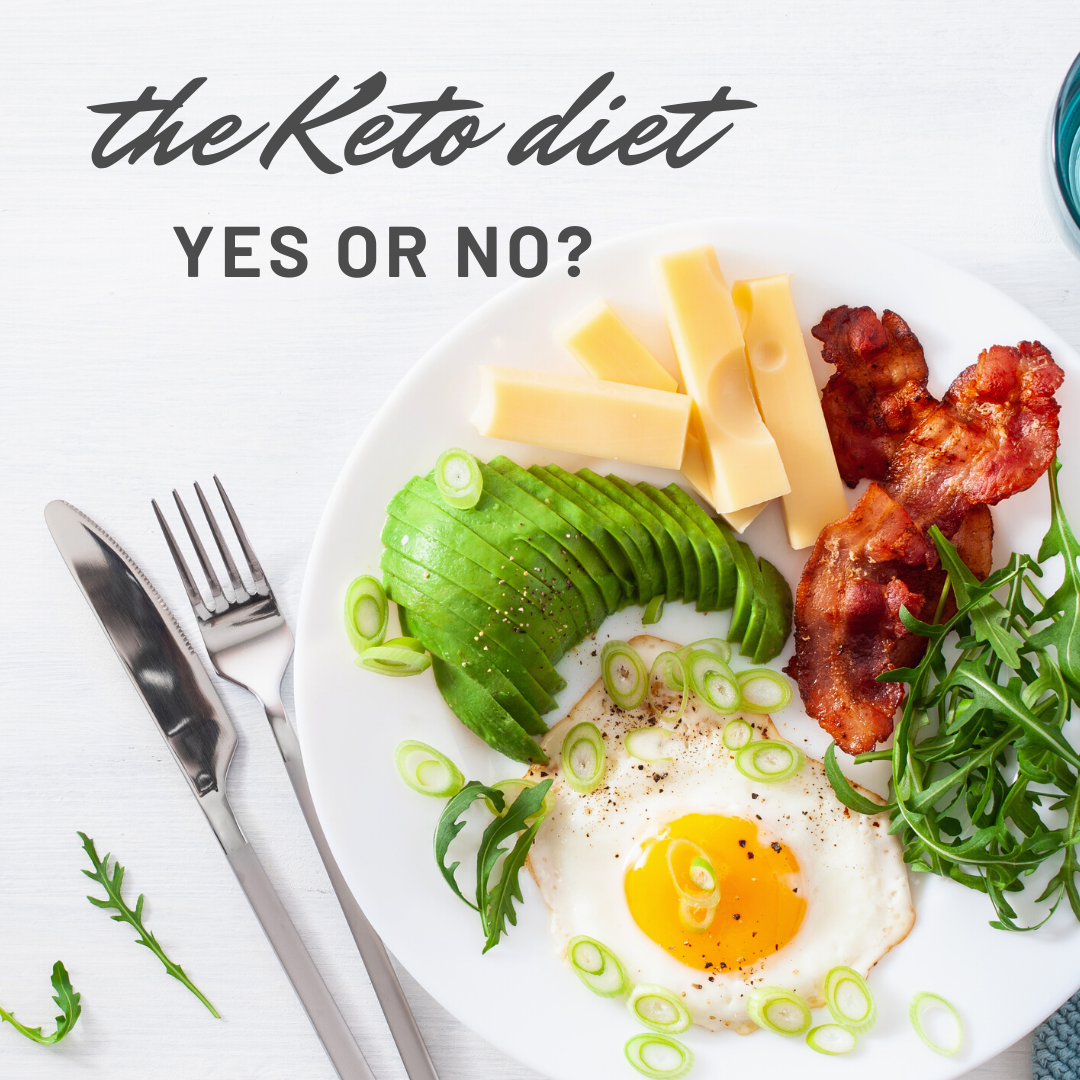Over the last few years, there has been a lot of buzz around a diet fad called “Keto”. Many of our patients have asked us about the safety and efficacy of this diet, as it has been shown to help some people lose significant amounts of weight.
In today’s blog, I hope to explain some of the science behind the Keto diet, as well as some of the published research on the Keto lifestyle in a cancer population.
The purpose of today’s blog is simply to inform, not to promote or warn against such a diet. Any dietary changes – particularly those made during treatment – should be discussed with a Registered Dietitian and your Oncologist.
What is a Ketogenic Diet?
The ketogenic diet (i.e. “Keto) is a diet that is very low in carbohydrates and high in fat.
Under normal circumstances, the body uses glucose as its primary form of energy. Glucose is derived from dietary carbohydrates, and either circulates in the blood stream or is stored as glycogen in the liver and skeletal muscles.
The body uses glucose to produce energy (“adenosine tri-phosphate”, or ATP). Fats can also be broken down to produce ATP, under aerobic conditions.
During the keto diet, the reduction in carbohydrates puts the body into a metabolic state called ketosis. During ketosis, the body uses mostly fats as fuel for the body.
What are the pros and cons of the keto diet?
PRO:
For most people, the keto diet will result in short term weight loss. According to a published 2018 study, people who followed a well-formulated ketogenic diet lost more weight than those following a low-fat diet.
According to the researchers, a “well-formulated” ketogenic diet consisted of less than 50 net grams of carbohydrates and 1.5g protein/kg body weight per day.
CON:
While ketosis is a normal metabolic process, too many ketones in the bloodstream can be dangerous, even fatal. Increased levels of ketones can led to dehydration and an alteration of the chemical balance of the blood.
As ketone levels rise in the blood stream, the acidity of the blood also increases. This can lead to a condition known as ketoacidosis, which can poison the body and lead to death.
Ketoacidosis most commonly occurs in people with type 1 diabetes as a result of problems in insulin production. It is also observed in individuals who have drastically reduced the amount of calories and carbohydrates consumed, combined with high amounts of exercise.
In addition, eliminating an entire food group can be hard to maintain long-term. Studies show that people regain some or all of the weight lost when they quit the keto diet and resume a less extreme diet.
Finally, diets high in fat are associated with heart disease and obesity. Notably, many “keto diet-safe” foods, like bacon and red meat, can actually increase your cancer risk.
Is the keto diet safe during cancer treatment?
More clinical trials must be conducted in order to determine the safety and efficacy of the keto diet within a cancer population. At present, existing research is conflicting. Some studies have shown a link between the keto diet and slowed growth of some types of tumors in mice. A few studies in humans with certain types of brain tumors have also shown promise.
On the contrary, a very low-fat diet has been found to reduce risk of recurrence for certain types of breast cancer.
Certain types of cancer and/or treatment interferes with the ability of the body to break down proteins and fats. This could lead to digestive problems for the patient.
This is why it is so important to talk to your doctor or a dietitian before beginning the keto diet — or any other diet. Different diet plans work for different people, and your doctor can help you determine the best path to help you reach your health and wellness goals.

